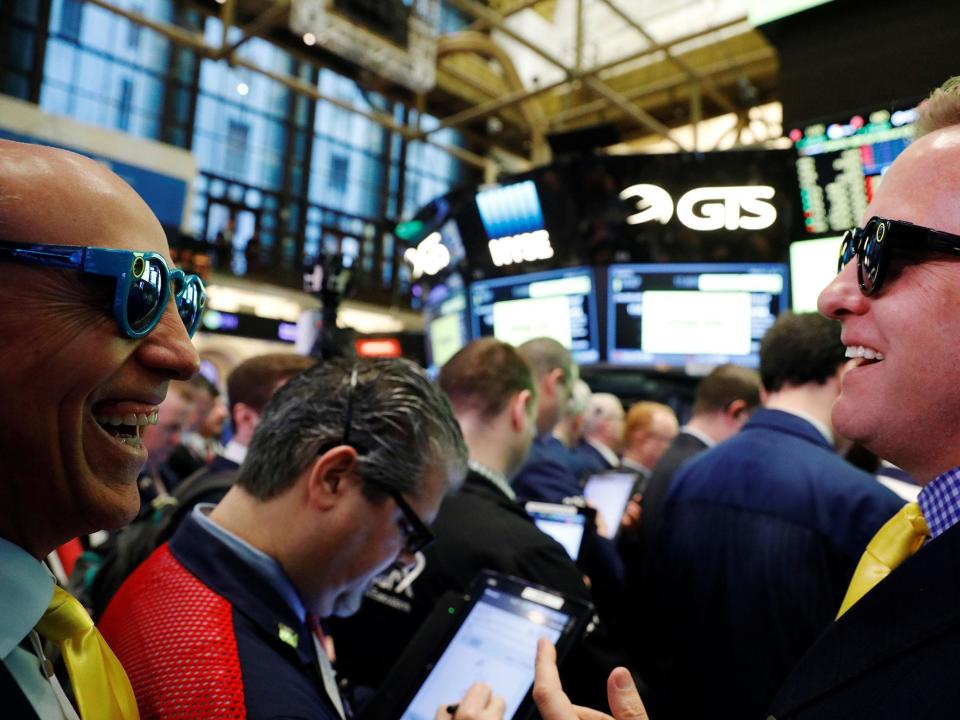This is how the price of shares is really decided

Equity investors – who have enjoyed strong gains over the past eight years – are unlikely to question the merits of stocks as an investment. US stock markets have tripled in price since 2009. In nominal terms the Dow Jones Index is up 70 per cent from its peak in January 2000. But 17 years later it is up only 19 per cent in real (inflation-adjusted) terms.
Investors rarely scrutinise the driver of equity returns. In reality stock markets have changed significantly over recent decades, driven by artificial factors that result in manipulated and unsustainable values.
The traditional functions of the stock market include facilitating capital-raisings for investment projects, allowing savers to invest and providing existing investors with the ability to liquidate their investments when circumstances require. Unfortunately, a number of factors now undermine these functions.
First, equity markets have increasingly decoupled from the real economy. Equity prices now do not correlate to fundamental economic factors, such as nominal gross domestic product or economic growth, or, sometimes, earnings.
Second, equity markets have become instruments of economic policy, as policymakers try to increase asset values to generate higher consumption driven by the “wealth effect” – increased spending resulting from a sense of financial security. Monetary measures, such as zero-interest-rate policy and quantitative easing, distort equity prices. Dividend yields that are higher than bond interest rates now drive valuations. Future corporate earnings are discounted at artificially low rates.
Third, the increased role of HFT (high frequency trading) has changed equity markets. HFT constitutes up to 70 per cent of trading volume in some markets. The average holding period of HFT trading is around 10 seconds. The investment horizon of portfolio investors has also shortened. In 1940 the average investment period was seven years. In the 1960s it was five years. In the 1980s it fell to two years. Today it is around seven months. The shift from investing for the long run has fundamentally changed the nature of equities, with momentum trading a larger factor.
Fourth, the increasing effect of HFT has increased volatility and the risk of large short-term price changes, such as that caused by the 7 October “flash crash”, discouraging some investors.
Fifth, financialisation may facilitate market manipulation, with the corrosive impact of insider-trading and market abuse eroding investor confidence.
US federal investigators found a spider’s web of insider-trading exploited by a small group of funds that benefited twice: from both trading profits and artificially enhanced returns. These, in turn, generated more investments and higher management fees. The investigations revealed expert network firms, which provided “independent investment research”. Redefining the concept of expertise, these firms seemed to specialise in matching insiders with traders hungry for privileged information, routinely allowing access to sensitive information on sales forecasts and earnings.
Regulators suggested that the practice was so widespread as to verge on a corrupt business model. Reminiscent of the late 1980s investigations into Drexel Burnham Lambert, Ivan Boesky and Michael Milken, the clutch of prosecutions has created an impression that a small golden circle of traders have an information edge, disadvantaging other, especially smaller, investors.
Finally, alternative sources of risk capital, the high cost of a stock market listing, particularly increasing compliance costs, increased public disclosure and scrutiny of activities including management remuneration as well as a shift to different forms of business ownership, such as private equity, have changed the nature of equity market. New capital raisings are increasingly viewed with scepticism as private investors or insiders seek to realise accreted gains, subtly changing the function of the market. The problems are evident in both the primary markets (lower numbers of initial public offerings of new shares) and in the secondary markets (reduced market turnover).
The recent Snapchat IPO illustrates the trend. Snap, a young, still unprofitable company, saw its shares soared 44 per cent on its first day of trading, although it fell sharply subsequently. Shareholders providing capital will not be able to control the company, as company insiders have not given common stockholders voting rights, which is inconsistent with conventional corporate governance models. In technology-intensive sectors, for example, entrepreneurs, such as those associated with Snap, now use IPOs to either facilitate exits for venture capitalists and founders, create a currency in the form of listed shares to compensate or finance acquisitions, or raise cash to fund shortfalls between revenue and expenditure.
The declines are symptomatic of the problems of excessive financialisation. Financial instruments, such as shares and their derivatives, are intended as claims on real businesses. Over time, trading in the claims themselves have become more rewarding, leading to a disproportionate increase in the level of financial rather than business activity. Longer term, the identified developments threaten the viability of the stock market as a source of capital for businesses and also as an investment, damaging the real economy.
Satyajit Das is a former banker. His 2016 book ‘A Banquet of Consequences’ (published in North America as ‘The Age of Stagnation’ to avoid confusion as a cookbook) is out now. He is also the author of ‘Extreme Money’ and ‘Traders, Guns & Money’.

 Yahoo Finance
Yahoo Finance 